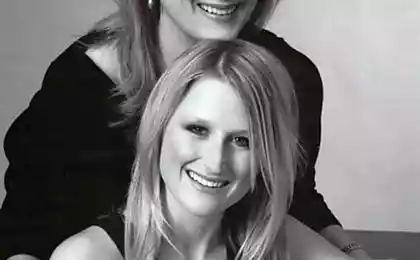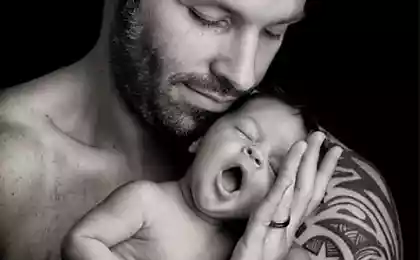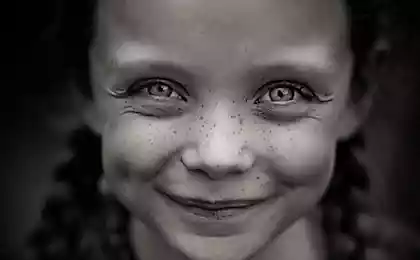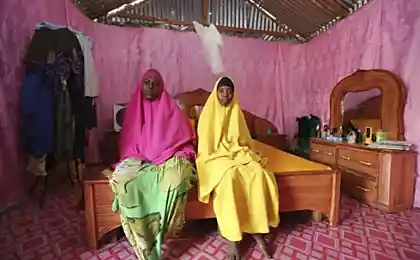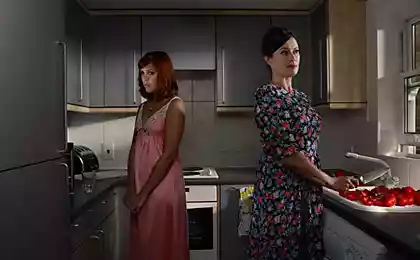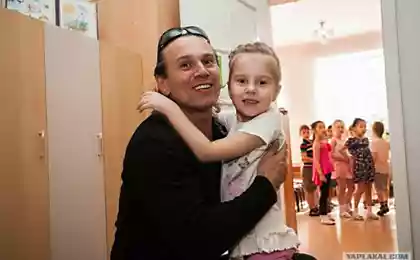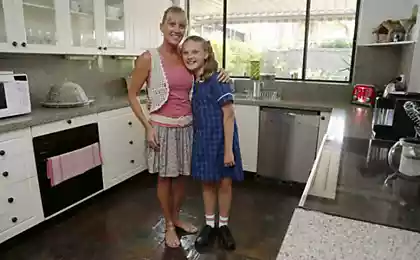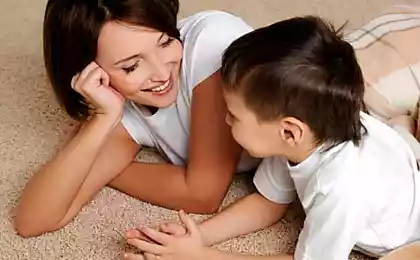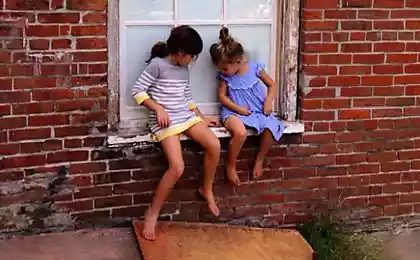1021
Pope and their daughter
Shima and Lima and their father - the manager of a large firm. "Our father was in Europe. That's why he gave us all the freedom of Western youth in their personal lives, "- they said.
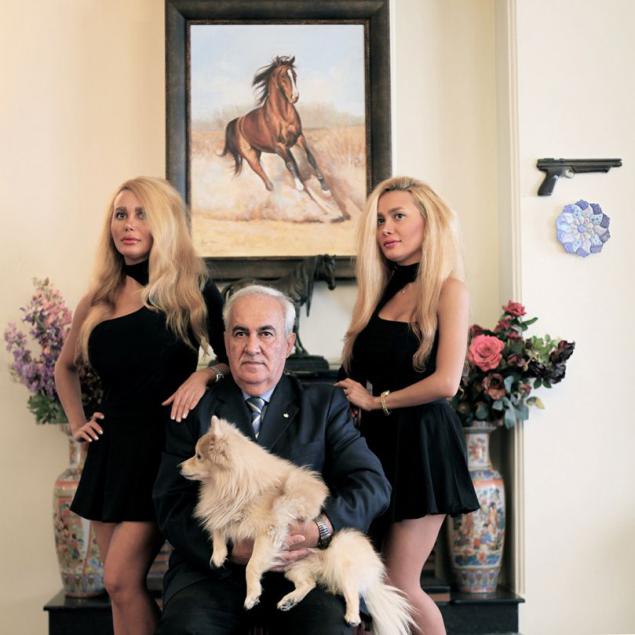
Azar and her father - a carpet salesman and his daughter. "He is a very cheerful person. He makes people laugh and jokes from his always fun at family celebrations. He likes board games with friends and often play chess in the market, "- said his daughter.
"There are stereotypes about the relationship of Iranian men and women who are mostly shown by many media outlets. But it is not so. That's why I decided to create a photo project to shed light on the real warm and trusting relationships between fathers and daughters in Iranian families, "- said the author of the project Nafis Motlak.
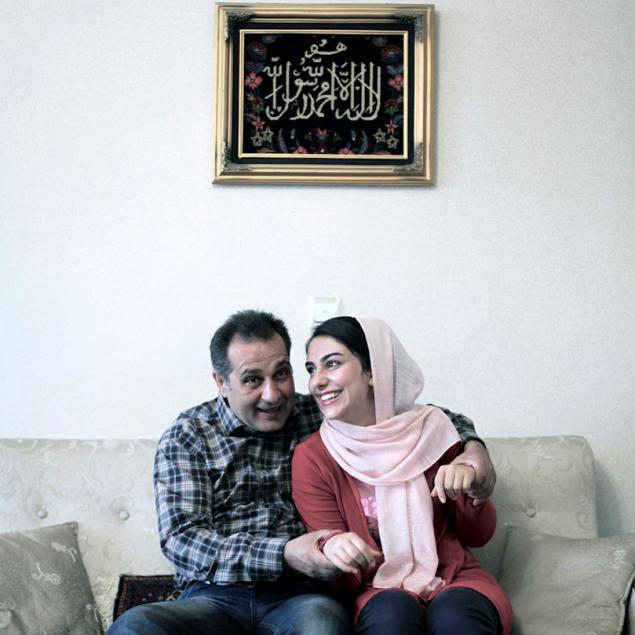
Fatima and her father - an office worker. "He is a good father. I do not know what to add, "- she said.
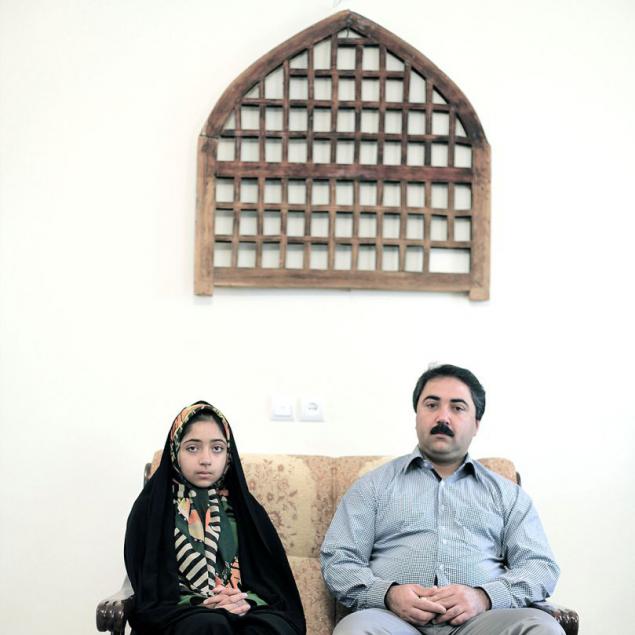
Catalunya and her father - a retired army officer. "My friends think that he cares about me too much, but I think he's a big fan of my life" - she said.
Nafis Motlak says he does not think that the relationship between fathers and daughters in Iran are very different from those that exist in other countries.
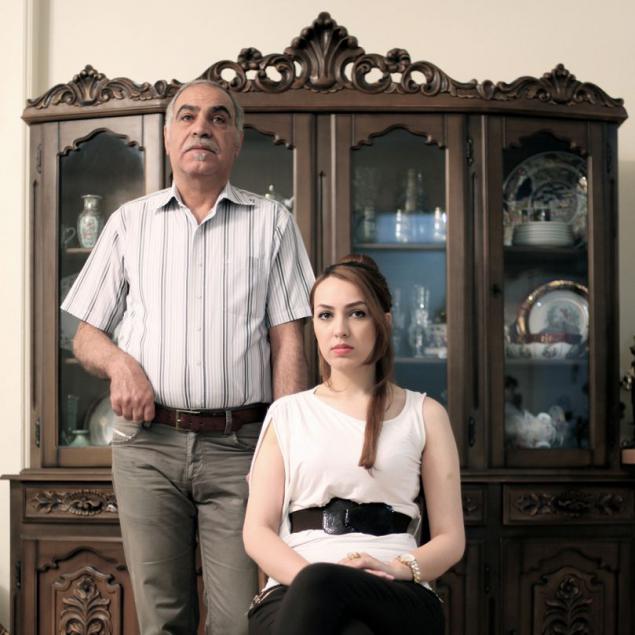
Fatima and her father - a librarian at the mosque. "People think that I have no freedom, because my father - a priest, but that's not true. He gave me permission to visit the National Book Fair with my friends when I was 15, "- she said.
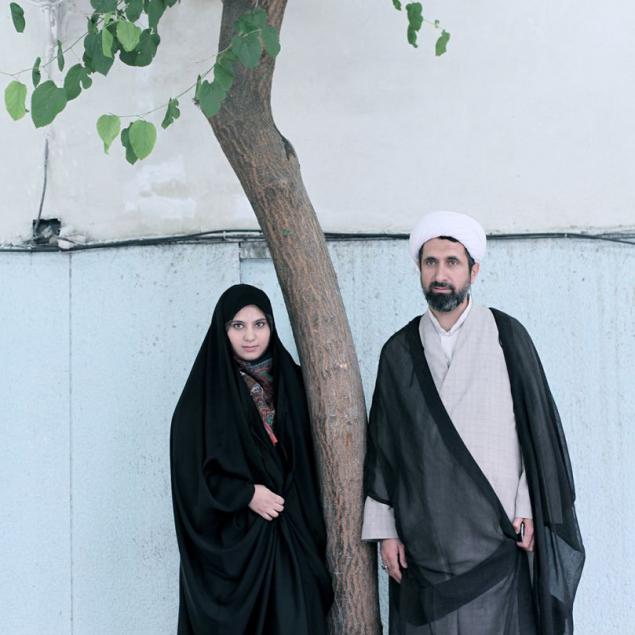
Shadi and her father - a businessman. "His soul is still sitting stubborn boy. You need to know how to deal with it, "- she said.
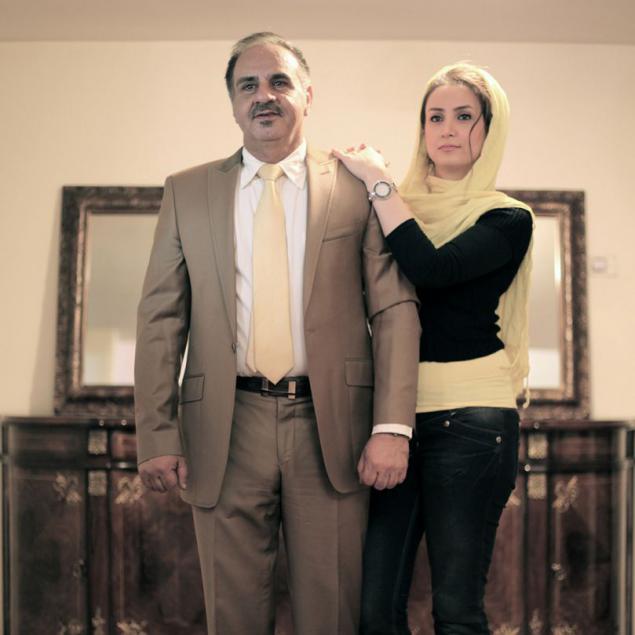
Zahra and her father - unemployed. "I do not know what to say about it," - she said.
Nafis Motlak spent a little less than two weeks, taking photos, traveling to cities and rural areas in order to better cover a broad stratum of the population. Its purpose was to show that "Iranian men are not all the same." Among them are many of these, like her own father, who train and support their daughters and women's rights in general. "There are many successful Iranian women in universities, in business, in the arts, science and industry, and we have to realize that most of them have very good support for fathers and male friends in their lives," - she added.
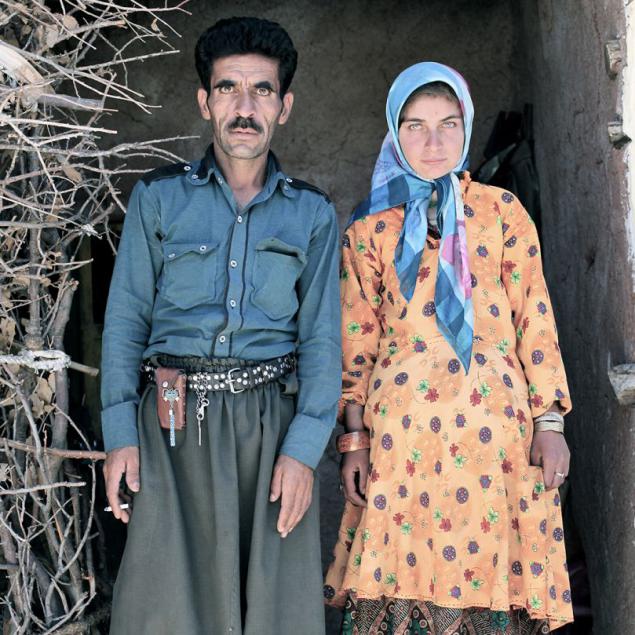
Zahra and her father - a farm worker. "He works hard, so that we can live a normal life," - she said.
"Culture of Iran may have many weak and unpleasant places, but whatever it was, it is far from the present state of affairs, which show the media in the world" - she said. "When you live outside Iran, you are tired of the wrong perception of strange questions about the people of your country. They judge everything based on false information. I think I know the reality and the truth is very important ».
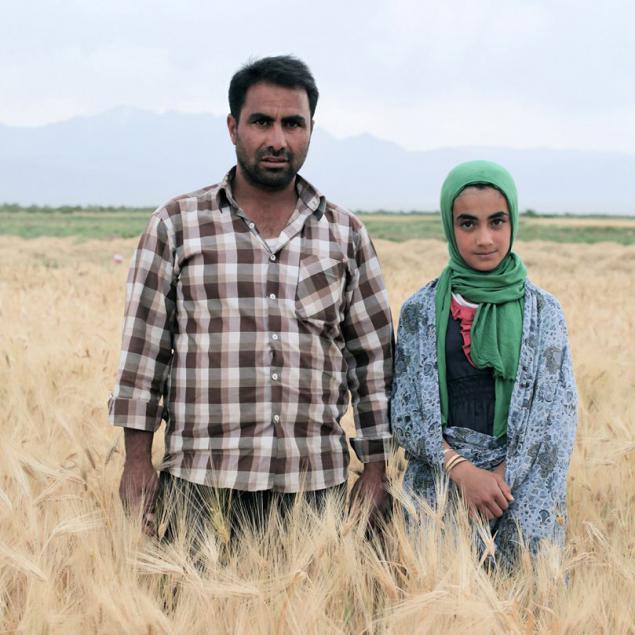
Masha and her father - a war veteran. "He was always my hero, but I want it to be a happy father," - she said.
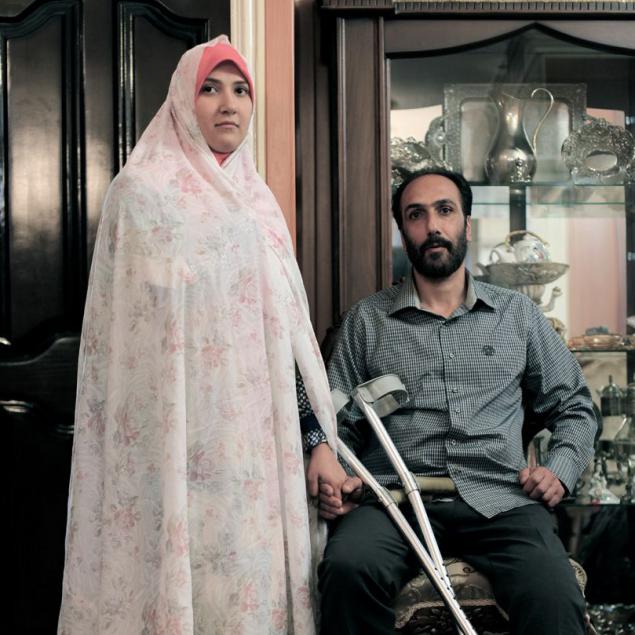

Azar and her father - a carpet salesman and his daughter. "He is a very cheerful person. He makes people laugh and jokes from his always fun at family celebrations. He likes board games with friends and often play chess in the market, "- said his daughter.
"There are stereotypes about the relationship of Iranian men and women who are mostly shown by many media outlets. But it is not so. That's why I decided to create a photo project to shed light on the real warm and trusting relationships between fathers and daughters in Iranian families, "- said the author of the project Nafis Motlak.

Fatima and her father - an office worker. "He is a good father. I do not know what to add, "- she said.

Catalunya and her father - a retired army officer. "My friends think that he cares about me too much, but I think he's a big fan of my life" - she said.
Nafis Motlak says he does not think that the relationship between fathers and daughters in Iran are very different from those that exist in other countries.

Fatima and her father - a librarian at the mosque. "People think that I have no freedom, because my father - a priest, but that's not true. He gave me permission to visit the National Book Fair with my friends when I was 15, "- she said.

Shadi and her father - a businessman. "His soul is still sitting stubborn boy. You need to know how to deal with it, "- she said.

Zahra and her father - unemployed. "I do not know what to say about it," - she said.
Nafis Motlak spent a little less than two weeks, taking photos, traveling to cities and rural areas in order to better cover a broad stratum of the population. Its purpose was to show that "Iranian men are not all the same." Among them are many of these, like her own father, who train and support their daughters and women's rights in general. "There are many successful Iranian women in universities, in business, in the arts, science and industry, and we have to realize that most of them have very good support for fathers and male friends in their lives," - she added.

Zahra and her father - a farm worker. "He works hard, so that we can live a normal life," - she said.
"Culture of Iran may have many weak and unpleasant places, but whatever it was, it is far from the present state of affairs, which show the media in the world" - she said. "When you live outside Iran, you are tired of the wrong perception of strange questions about the people of your country. They judge everything based on false information. I think I know the reality and the truth is very important ».

Masha and her father - a war veteran. "He was always my hero, but I want it to be a happy father," - she said.


